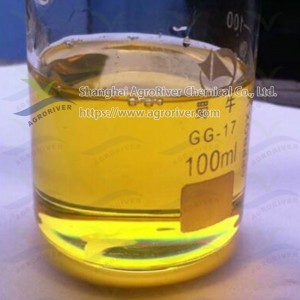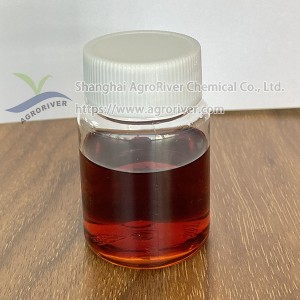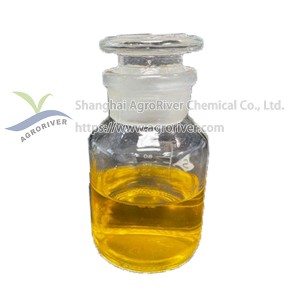2, 4-D Dimethyl Amine Salt 720G/L SL Herbicide weed killer
Products Description
Basic Information
Common Name: 2,4-D (BSI, E-ISO, (m) F-ISO, WSSA); 2,4-PA (JMAF)
CAS No.: 2008-39-1
Synonyms: 2,4-D DMA, 2,4-D dimethylamine salt, 2,4-D-Dimethylammonium, Aminol, Dimethylamine 2-(2,4-dichlorophenoxy)acetate
Molecular Formula: C8H6Cl2O3·C2H7N, C10H13Cl2NO3
Agrochemical Type: Herbicide,phenoxycarboxylic acids
Mode of Action: Selective systemic herbicide. Salts are readily absorbed by the roots, whilst esters are readily absorbed by the foliage. Translocation occurs, with accumulation principally at the meristematic regions of shoots and roots. Acts as a growth inhibitor.
Specification:
|
ITEMS |
STANDARDS |
|
Product name |
2,4-D Dimethyl Amine Salt 720g/L SL |
|
Appearance |
amber to brown transparent homogeneous liquid, with an amine odour. |
|
Content of 2,4-D |
≥720g/L |
|
pH |
7.0~9.0 |
|
Free phenol |
≤0.3% |
|
Density |
1.2-1.3g/ml |
Packing
200L drum, 20L drum, 10L drum, 5L drum, 1L bottle or according to client's requirement.
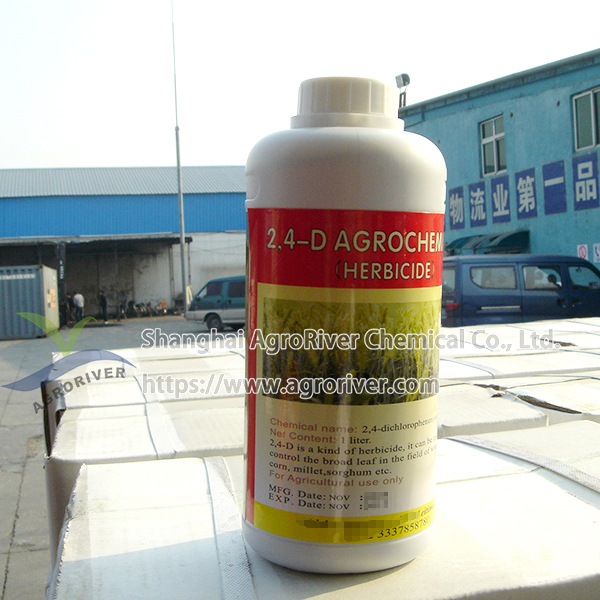
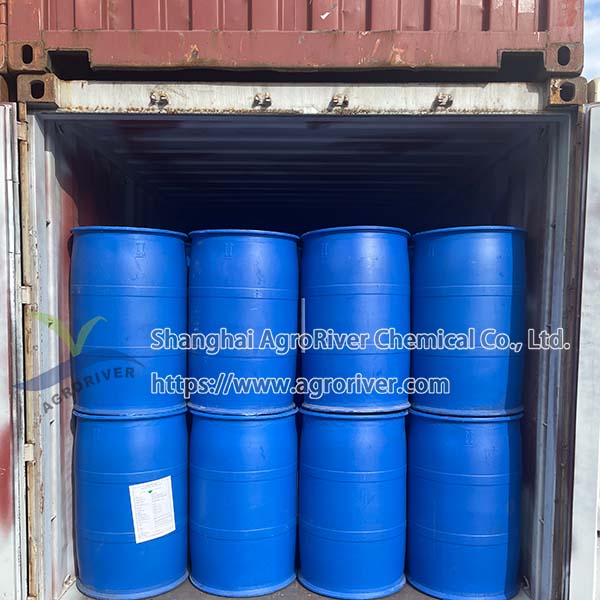
Application
Uses Post-emergence control of annual and perennial broad-leaved weeds in cereals, maize, sorghum, grassland, established turf, grass seed crops, orchards (pome fruit and stone fruit), cranberries, asparagus, sugar cane, rice, forestry, and on non-crop land (including areas adjacent to water), at 0.28-2.3 kg/ha. Control of broad-leaved aquatic weeds. The isopropyl ester can also be used as a plant growth regulator to prevent premature fruit fall in citrus fruit. Phytotoxicity Phytotoxic to most broad-leaved crops, especially cotton, vines, tomatoes, ornamentals, fruit trees, oilseed rape and beet.





